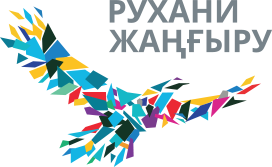OpenU platform to give access to worldwide-recognised textbooks in Kazakh language
The project, New Liberal Arts Education: 100 New Textbooks in the Kazakh Language, is one of the large-scale tasks set in the Rukhani Zhangyru (Modernisation of Kazakhstan’s Identity) programme. The Kazakh National Translation Bureau is implementing the project since 2017.

To select textbooks, 800 lists from different Kazakh universities were reviewed. The bureau selected 18 textbooks to translate in 2017.
“At least three edition of the textbook should be published [so that we can choose it for translation]. The most recent edition should also be within the last three years. These requirements prove that the textbook is in use and its data is up-to-date. The selection process starts from universities [of Kazakhstan]. We send them a request and asked for the list of textbooks they consider needed for them. There were 800 lists of textbooks. There were textbooks as well as research studies. All of them were from the lists of leading universities’ in humanities and social sciences,” National Translation Bureau Executive Director Rauan Kenzhekhanuly said recently.
These textbooks are being translated into the Kazakh language, published and delivered to universities for free. New textbooks will be introduced into the higher education system for 2018-2019 school year. Electronic versions of some of the textbooks are available on the bureau’s web page free-of-charge.
Currently, translation of 30 books is on-going. The leading educational institutions of Kazakhstan and more than 200 specialists were attracted to translate selected textbooks into Kazakh. The textbooks are repeatedly edited for literary and scientific content.
The project is expected to influence development of the Kazakh language and expansion of knowledge in it. Through this, the Kazakh-language scientific content and language vocabulary will be enriched. In turn, it will provide the Kazakh-speaking audience with worldwide-recognised books in humanities and social sciences improving education in the field. The project is also expected to influence the development of translation studies in the country.
“Intellectuals, social science society, teachers and students should consider this project as an opportunity that is directly related to their daily lives and future. […] We should not miss this opportunity. The state created all conditions. Therefore, it is necessary to create a society that can be involved,” said the director.
Along with the translation of the textbooks, the bureau is working on online courses for OpenU. According to the Digital Kazakhstan project and 2018-2020 roadmap for the development of human capital, along with the Kazakh Ministry of Education and Science, the bureau is working on the development of the OpenU platform.
“Comprehensive work is done on the development of online courses that consist of a set of video lectures. [The lectures] are presented by leading experts and teachers based on the translated textbooks. Video lectures are supplemented with notes, tasks for consolidating the material, as well as tests and exam questions for testing the knowledge,” said Kenzhekhanuly.
Online courses of the platform can be included in the curricula of students of any Kazakh university. The universities are given the opportunity to receive complete information about the performance of their students, if necessary, to provide them with methodological support. By completing the course, the listener will have the opportunity to receive a certificate.
OpenU has 95 online courses and 2,632 lectures from 107 authors. The courses cover humanities and social sciences disciplines such as philosophy, anthropology, sociology, religious studies, economics, entrepreneurship, management, history, psychology, law, pedagogy, media, cultural studies, literature.



